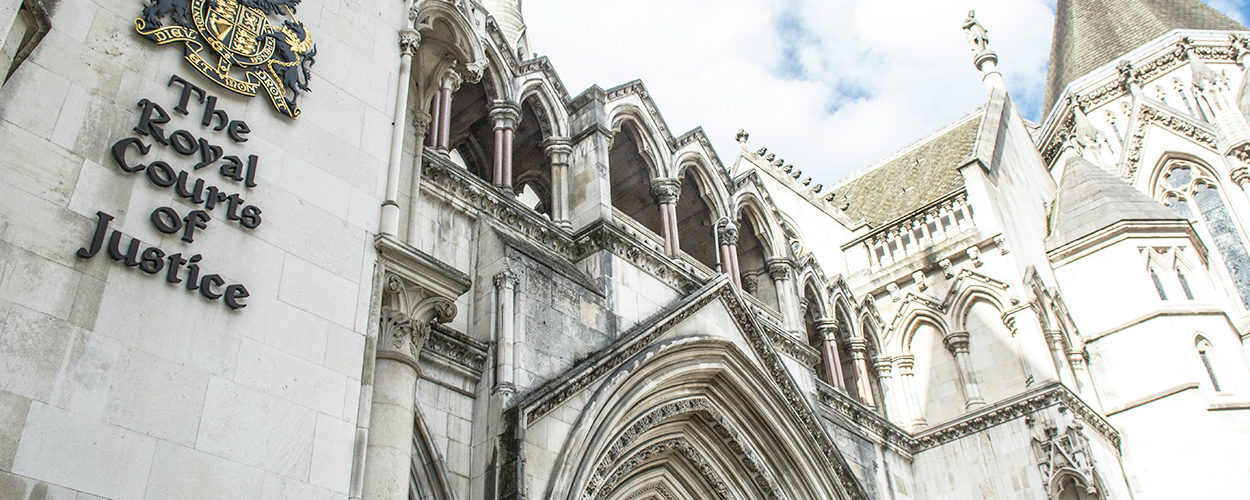This website uses cookies so that we can provide you with the best user experience possible. Cookie information is stored in your browser and performs functions such as recognising you when you return to our website and helping our team to understand which sections of the website you find most interesting and useful.
Business News Legal Live Business Top Stories
Ticket tout convictions upheld by appeals court
By Chris Cooke | Published on Monday 29 November 2021

The English court of appeal has upheld the guilty verdict against former ticket touts Peter Hunter and David Smith who were together sentenced for a total of six and half years in jail in relation to their touting companies, which operated as Ticket Wiz and BZZ.
Hunter and Smith were jailed following an investigation pursued by UK National Trading Standards, which took responsibility for enforcing the consumer rights laws that are relevant to ticket touting against the individuals who were reselling tickets on an industrial level.
Hunter and Smith were found guilty of breaching laws that prohibit the use of special software to hoover up tickets from primary ticketing sites, and of failing to meet their legal obligation to warn the buyers of their touted tickets that they were not official sellers, and that the tickets they were selling could actually be cancelled by a show’s promoter.
The two touts were found guilty by a jury at Leeds Crown Court in early 2020. They then took their case to the court of appeal, arguing that the judge in the original case had incorrectly directed the jury on matters of law, and that any restrictions attached to the sale or resale of tickets by a promoter were void and invalid. As a result, they argued, the guilty verdicts were unsafe and should be quashed.
However, the appeal judges have rejected all those arguments. An official summary of their judgement states that the appeals court has “upheld the conclusion of the judge at trial that the restrictions imposed by event organisers were valid” and also “concluded that the judge acted properly in all relevant respects and that the convictions are safe and lawful”.
Part of Hunter and Smith’s defence during the original trial was that many of the primary sites from which they bought tickets in bulk – and the secondary ticketing sites on which they resold those tickets – were aware of how they ran their business and in some cases actively encouraged it. And, of course, for a chunk of the time that the two men were touting, the biggest primary site – Live Nation’s Ticketmaster – also owned two of the big secondary sites – Seatwave and Get Me In. This argument was re-presented – with new evidence – during the appeal.
The official summary of the appeals court judgement notes that Hunter and Smith “argued that for many years the commercial sale of tickets on the secondary sites by the ‘big four’ (Stubhub, Seatwave, GetMeIn! and Viagogo) had been not merely tolerated but in fact actively encouraged. They did this knowing full well that tickets were sold subject to restrictions”.
“Moreover”, it goes on, “they argued that three of the big four secondary sites were owned by, or operated in partnership with, primary ticketing sites. These sites classified traders like Hunter and Smith as ‘trusted’, and it was acknowledged that they would circumvent the purported restrictions. One secondary site gave them and other traders a bar code scanner so that they could resell digital tickets with a unique trader-secondary site generated barcode”.
However, while acknowledging those allegations, the appeals court stated that: “This appeal … focuses more narrowly upon the conduct of the appellants as buyers and resellers of tickets, and not on the possibility that fraud is also being perpetrated by others. It will be for the prosecutorial authorities to consider whether other and broader enforcement action is necessary”.
That said, the appeals judges went on, “if the appellants are correct and there are potentially hundreds of other operators all running businesses like theirs; and if they are also correct and there is connivance and collusion between ticket touts and the [primary ticketing websites] and [secondary ticketing websites], then the ticketing market is one which appears to be characterised by a high degree of criminal fraud. The evidence we have seen certainly suggests this possibility”.
Although not relevant to this case, that latter conclusion is nevertheless pretty significant. It remains to be seen if it motivates further scrutiny of the wider ticketing sector, past and present.
Either way, last week’s ruling was welcomed by National Trading Standards. Wendy Martin, a Director at the government agency, said on Friday: “We welcome today’s ruling by the court of appeal, which represents another major milestone in the efforts to tackle the dishonest and fraudulent practices in the secondary ticketing market”.
“Consumers continue to be at a disadvantage when trying to spend their hard-earned money on tickets for music concerts and sporting events”, she added, “and we hope our work to test the current legislation and make recommendations to government will make it easier and safer for consumers buying tickets in the future”.
Meanwhile the anti-touting FanFair Campaign also hailed the ruling. Campaign Manager Adam Webb said: “This precedent-setting judgement will be a bitter blow for Hunter and Smith. But there will also be far-reaching ramifications for other touts, many of whom use similarly unlawful business methods to acquire tickets, and for websites like Viagogo and StubHub who depend on these suppliers for the bulk of their listings”.
“All in all”, he went on, “it’s a good day for music fans, and another nail in the coffin for those who profit from, support and invest in these deeply unethical practices”.





